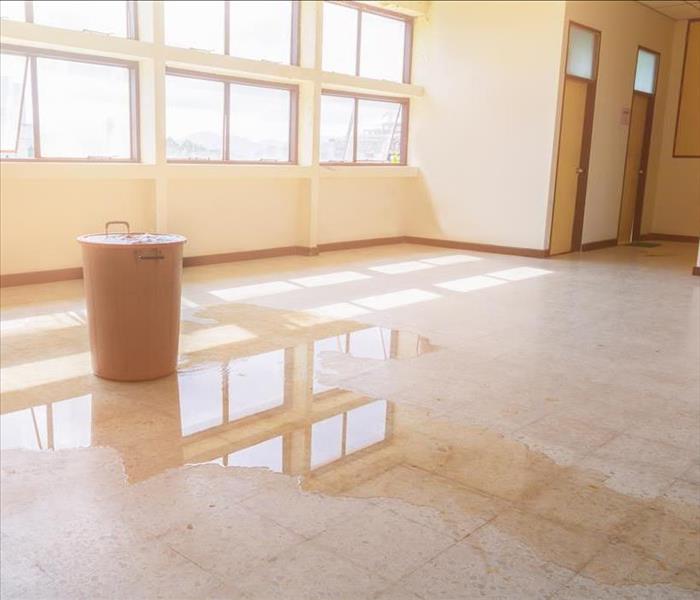Water Damage Cleanup Tips
11/1/2021 (Permalink)
 Professional water restoration companies have the best chance of reinstating your home to its previous condition.
Professional water restoration companies have the best chance of reinstating your home to its previous condition.
Over the past few years, floods have killed more individuals than tornadoes and lightning combined. Flooding can cause life-threating damage to you, your home, and your business. When dealing with the aftermath of water damage, first and foremost you need to think about safety. Wait until it is safe to return to the property before assessing the damages. While light damage can usually be taken care of by the homeowner, a major flood will present extremely hazardous conditions and should be cleaned and restored by a professional.
Getting Ready to Clean Up
When it is safe to investigate, here are some tips before you begin cleaning up from water damage:
- Beware of any living critters (snakes, rodents, insects, etc.) that may have been carried in by the water.
- Assess the situation by looking for exterior damage, foundation cracks, broken pilings, or slanted floors and walls.
- Avoid turning on any lights, ceiling fans, appliances, or anything else that requires electricity and turn off the power.
However, you should not enter the building if there seems to be any signs of structural damage.
The Cleanup Process
First, you need to make sure you are protecting yourself when cleaning. You should wear protective clothing, boots, and gloves and sanitize your hands often. When you are ready to begin, here are some things to prioritize when cleaning up from water damage:
- Check to see if your water supply is safe to use for cleaning and try to contain water within the affected area.
- Take photos and make a list of all of the damages.
- Open all of the doors and windows to allow for ventilation in the space.
- Remove all trash and debris from the area.
- Start absorbing all of the moisture in the home using wet vac, shop vac, fans, or dehumidifiers to prevent any mold growth (and check to see if it hasn’t started to grow already.)
- Place aluminum foil between wet flooring materials and furniture legs.
- Remove any porous materials, such as insulation or carpet, if they are wet to avoid mildew.
- Disinfect hard surfaces with hot water and cleaning supplies.
For major flooding and or natural disasters, it is not the time to attempt a DIY cleaning project.
In situations with serious water damage, the best thing you can do is call a professional. Professional water restoration companies have the best chance of reinstating your home to its previous condition.
As always, we are here for you to restore any property plagued with water damage. Contact our water removal and water damage remediation team immediately for further assistance.





 24/7 Emergency Service
24/7 Emergency Service